Milk And Music: Indian Villages Support Protesting Farmers
Blasting catchy pro-farmer songs from a speaker, an electric-blue tractor rattled down an Indian village road collecting pails of milk -- just some of the donations sustaining massive protest camps outside New Delhi.
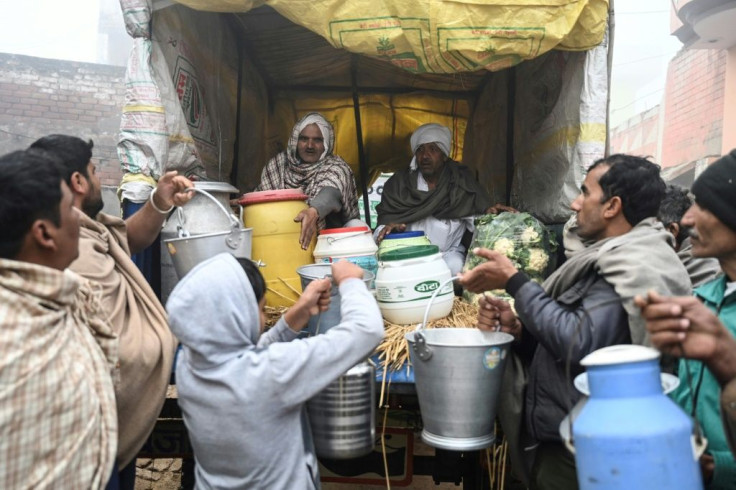
More than two months after the first farmers set up camps on the capital's borders, tens of thousands more have joined them, calling for the repeal of new agriculture laws.
The farmers, who have slept outdoors through the winter cold, are being supported by an army of small villages in the northern states neighbouring Delhi.
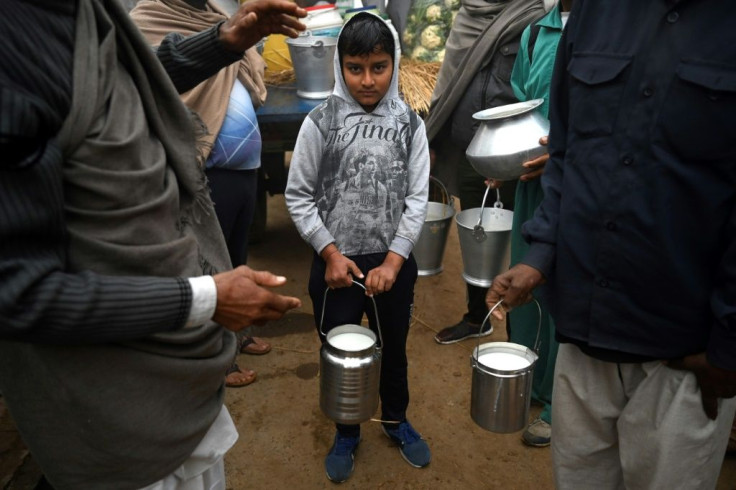
"This campaign, this farmer movement, isn't theirs -- those who are sitting there -- alone," Sumit Arya, the 35-year-old head of Makrauli Khurd, a village about two hours' drive from the main protest sites, told AFP.
"
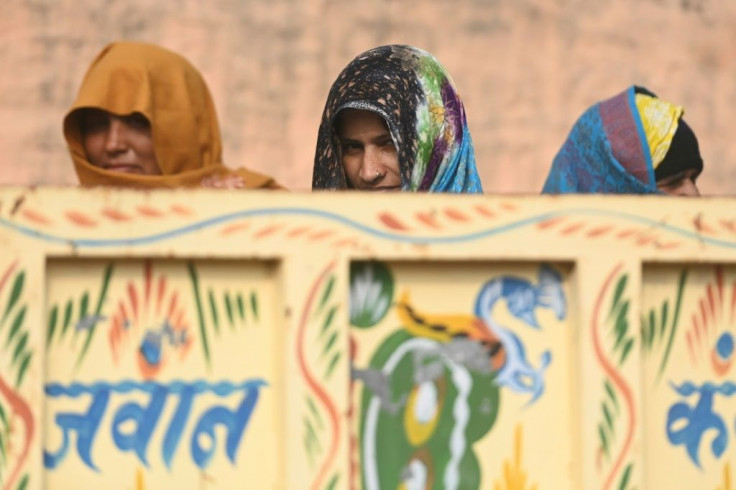
Makrauli, home to 4,000 people, is a hive of activity every morning with men and women bringing vegetables and wood to collection points.
On Tuesdays, villagers carry small metal buckets full of milk freshly squeezed from their cows to the back of trailers, where men like Ajit Singh gently pour them into larger cans.
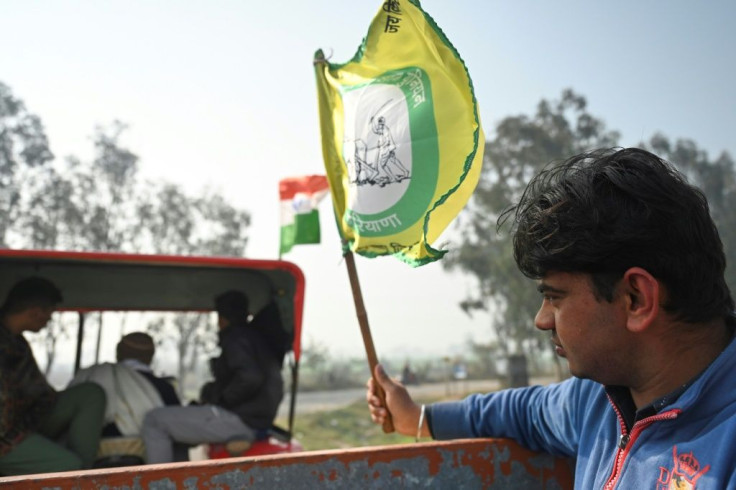
"We can't give our time there but we can take care of their food and water needs and whatever they need in winter," the 58-year-old farmer told AFP as he sat on a bed of hay in a trolley.
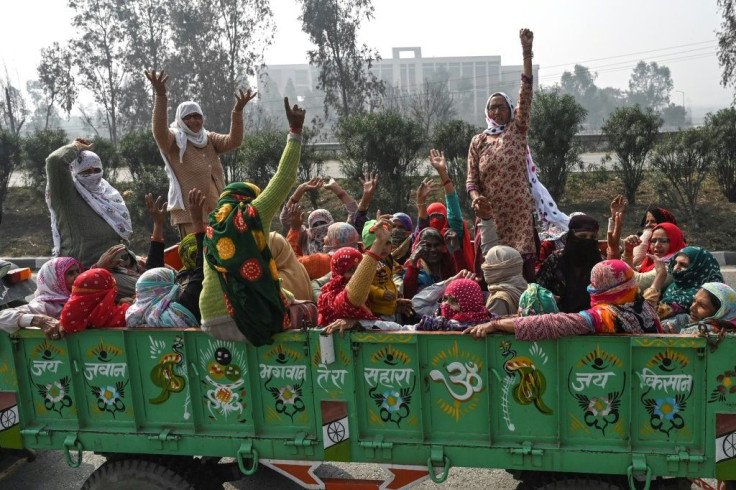
Around him, villagers raised their fists and chanted "zindabad" ("long live"), in reply to someone yelling "kisan ekta" ("farmers united") -- a rallying cry often heard at the protests.
The government says the agriculture sector needs to be modernised. But farmers fear the deregulation will place them at the mercy of big corporations.
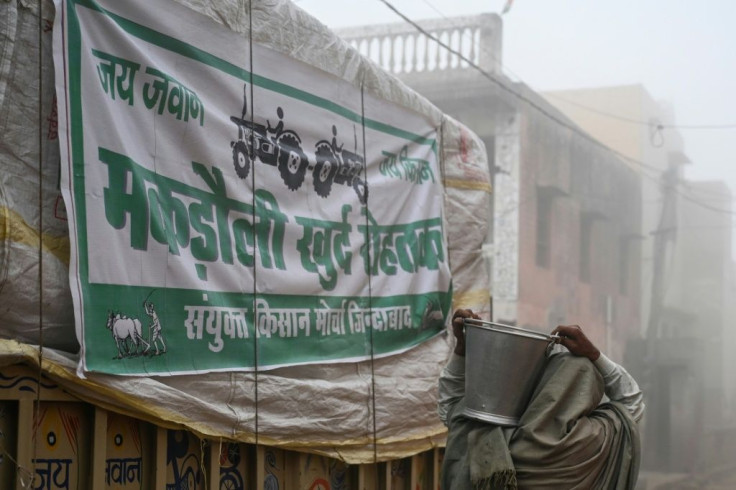
Farming has long been a political minefield in India, with nearly 70 percent of the 1.3-billion-strong population drawing their livelihood from agriculture.
The protests -- which turned deadly in late January when a tractor rally in Delhi turned into a rampage -- have become one of the biggest challenges to Prime Minister Narendra Modi's government since it came to power in 2014.
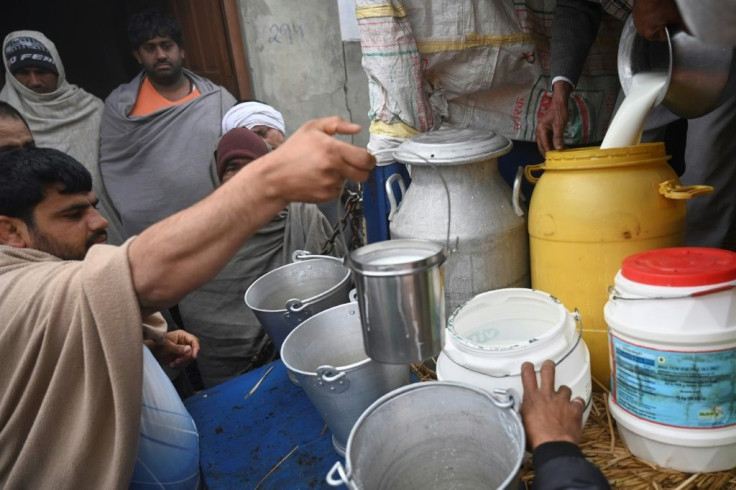
Since the start of the sit-in protests in late November, a support network has sprung up to care for the sprawling camps.
Tractors pulling trolleys laden with wood, rice, flour, sugar and vegetables leave villages like Makrauli on daily or weekly rotations for the camps.
They are joined by farmers and their families eager to spend the day or several nights at the sites.
"We strike up friendships... Two or three tractors keep going from our village to keep their spirits up," Ajay Punia, 18, told AFP on a trailer en route to Delhi from Makrauli with 11 others aged 14 to 65.
The villagers played songs of resistance, as green and yellow farmer union flags and the Indian tricolour fluttered from the tractor.
Moments later, two trolleys carrying about 30 people -- mostly women -- from another village passed by and the two groups pumped their fists into the air and chanted slogans. Beside the highway, people waved their support.
By the time the villagers pulled up at a big protest camp at the Tikri border with Delhi, energy levels were high.
The trolley stopped at a community kitchen run by Makrauli and several nearby villages, and the boys and men climbed out and sat in a straight line on a mat.
"Without this brotherhood, nothing works. Even in our village, different castes are a part of it," Arya said.
"People are getting increasingly pulled towards this (protest)... And whatever its length, we are not backing out."
© Copyright AFP 2024. All rights reserved.





















